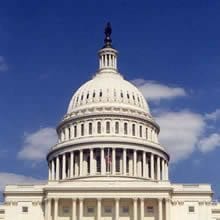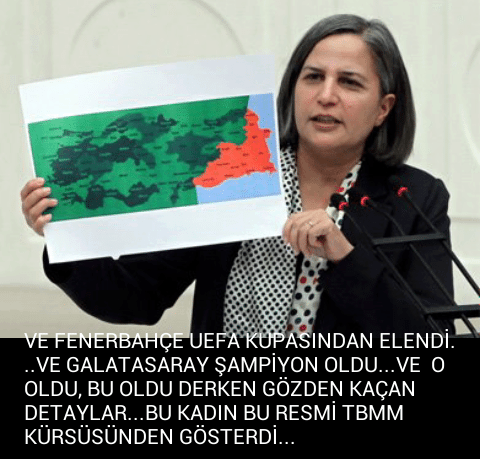By ftg on Thu, 03/12/2015 – 09:22
ABD’nin önümüzdeki seçimlerde Başkan adaylarından olan Paul, ‘Kürdistan’ın sınırlarımı kendi ellerimle çizeceğim, onlara bir ülke sözü veriyorum’ dedi.

Amerika’nın 2016 yılı Başkanlık seçimleri için adaylardan biri olan Senatör Rand Paul, Kürtlerin kendi devletlerini kurma imkanının tanınması gerektiğini belirterek, “Ben Kürdistan için yeni sınırlar çizeceğim ve onlara yeni bir ülkenin sözünü veriyorum” dedi.
Breitbart News’e konuşan Cumhuriyetçi Parti Üyesi Rand Paul, Amerika’nın bugüne kadar verdiği desteğin yeterli olmadığını, Kürtlerin IŞİD karşısında daha fazla silahlandırılmaları gerektiğini söyledi.
“Kürtler en iyi savaşçılar olduğunu” ifade eden Paul, “Kürtler için gönderilen silahlar önce Bağdat’a ulaşıyor, burada hortumlandıktan sonra geri kalanlar Kürtler’e ulaşabiliyor ki bu da ihtiyaç duydukları şey değil. Silahlar direk olarak Kürtler’e ulaştırılmalı” diye konuştu.
Kürtlere kendi devletlerini kurma imkanının da tanınması gerektiğinin altını çizen Senatör Rand Paul, şunları belirtti:
Senatör Ted Cruz da, Şubat ayının başlarında ABC televizyonunda yayınlanan “Bu Hafta (This Week) “ adlı programda; “Amerikan birliklerinin Irak’ta IŞİD’e karşı kara harekâtına girişmesi gerektiğine inanmıyorum, bunun sebebi biz zaten orada savaşan birliklere sahibiz ki onlar Kürtlerdir. Peşmerge eğitimli ve etkili savaşçılardır” demişti.
Bir diğer Başkan adayı Senatör Lindsey Graham ise, Kürtlerin silahlandırılmasının yanı sıra, 10 bin Amerikan askerinin IŞİD ile savaş için görevlendirilmesi çağrısında bulunmuştu.
Sozcu
======================
88 Letters Sent So Far

We believe in Turkey’s founder M. K. Ataturk’s principle of “Peace at home, peace in the world!”
Turkey’s current borders are formed based on the following treaties.
The boundary with Greece was confirmed by the Treaty of Lausanne in 1923, which resolved persistent boundary and territorial claims involving areas in Thrace and provided for a population exchange (see: War of Independence). Under the agreement, most members of the sizable Greek-speaking community of western Turkey were forced to resettle in Greece, while the majority of the Turkish-speaking residents of Thrace who were not forced out during the Balkan wars were removed to Turkey.
The boundary with Bulgaria was confirmed by the Treaty of Lausanne in 1923.
Since 1991 the more than 500 km (311 mi) boundary with the former Soviet Union, which was defined in the 1921 Treaty of Moscow (1921) and Treaty of Kars, has formed Turkey’s borders with the independent countries of Armenia, Azerbaijan, and Georgia.
The boundary with Iran was confirmed by the Treaty of Kasr-i Sirin in 1639.
The boundary with Iraq was confirmed by the Treaty of Angora (Ankara) in 1926. Turkey’s two southern neighbors, Iraq and Syria, had been part of the Ottoman Empire up to 1918. According to the terms of the Treaty of Lausanne, Turkey ceded all its claims to these two countries, which had been organized as League of Nations mandates under the governing responsibility of Britain and France, respectively. Turkey and Britain agreed the boundary in the Treaty of Angora (Ankara).
Turkey’s boundary with Syria has not been accepted by Syria. As a result of the Treaty of Lausanne, the former Ottoman Sanjak (province) of Alexandretta (present-day Hatay Province) was ceded to the French which administered it on behalf of the League of Nations. However, in June 1939 the people of Hatay had formed a new independent State and immediately after, the parliament voted to unite with Turkey. Since achieving independence in 1946, Syria has harbored a lingering resentment and this issue has continued to be an irritant in Syrian-Turkish relations.
Turkey is a democratic, secular, unitary, constitutional republic with a diverse cultural heritage. The country’s official language is Turkish, a Turkic language spoken natively by approximately 85 percent of the population. 70 80 percent of the population are ethnic Turks; the remainder consists of legally recognized (Armenians, Greeks and Jews) and unrecognized (Kurds, Circassians, Albanians, Bosniaks, Georgians, etc.) minorities. The vast majority of the population is Muslim. Turkey is a member of the UN, NATO, OECD, OSCE, OIC and the G-20.
A GUIDE TO THE UNITED STATES’ HISTORY OF RECOGNITION, DIPLOMATIC, AND CONSULAR RELATIONS, BY COUNTRY, SINCE 1776: TURKEY
U.S. RELATIONS WITH TURKEY
Rand Paul, Longtime Foe Of Nation Building, Is Ready Now To Redraw The Middle East
Rand Paul: Give the Kurds a country

Bir yanıt yazın